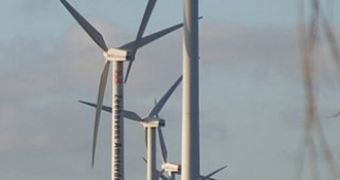Increasing electricity demand in Europe has prompted EU officials to elaborate a strategic energy grid development plan, which is to break the vicious circle that keeps the Union dependent on Russia for most of its gas imports. Seeing how 42 percent of all gas coming into the Old Continent is delivered by the Russian Federation, and that imports will most likely go up to about 70 percent in the next two decades, the European Commission is strongly determined to address this issue.
A total of eight states in the EU are entirely dependent on Russian gas for their needs, and Union officials find this to be unacceptable. Although their latest report does not mention Russia, it does state that these countries "are overwhelmingly dependent on one single supplier. A southern gas corridor must be developed for the supply of gas from Caspian and Middle Eastern sources, which could potentially supply a significant part of the EU's future needs."
The North Sea has been mentioned as a viable location for the construction of an off-shore power grid, one that could, eventually, centralize outputs from all of the projected wind farms, to be constructed off-shore as well. "It should become, together with the Mediterranean Ring and the Baltic Interconnection project, one of the building blocks of a future European super-grid," the paper said.
The main reason why the European Union wants to stop Russian gas imports is that they make the entire Union susceptible to the influence of the country, in that the Russians can stop supplying gas at any given time, over political disagreements. Furthermore, gas price "battles," between the Russian Federation and Ukraine, can further jeopardize the steady flow of gas to European countries.
A solution for this problem is to find new places to import gas from, including countries in Asia and the Middle East. The paper also urges the Union to approve the construction of two new gas conduits, the South Stream and the Nabucco Gas lines, which will supply Europe with gas from Russia, and the Middle East, respectively.

 14 DAY TRIAL //
14 DAY TRIAL //